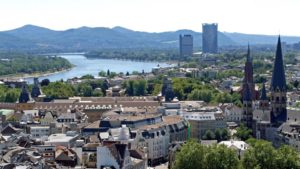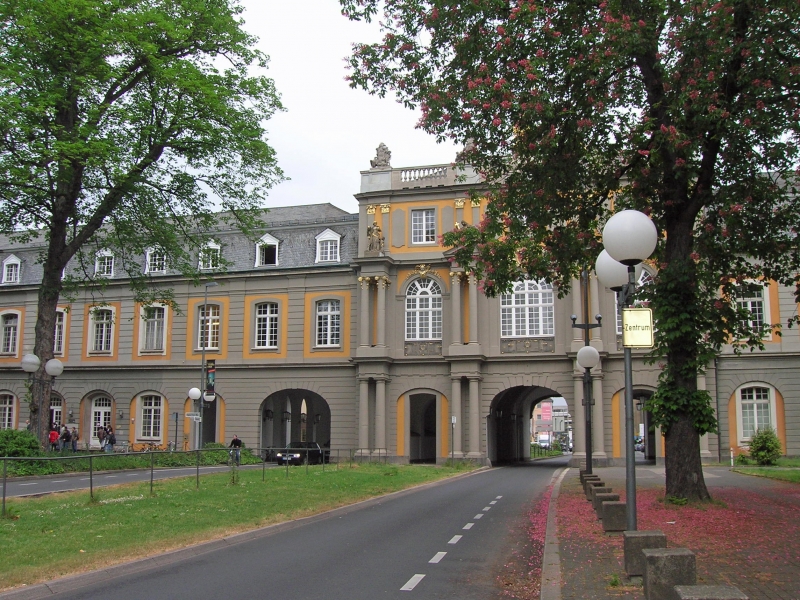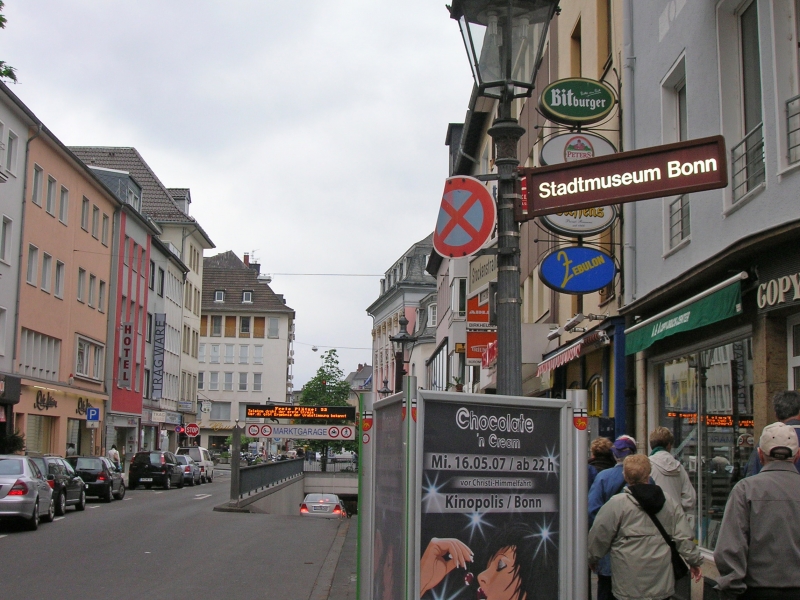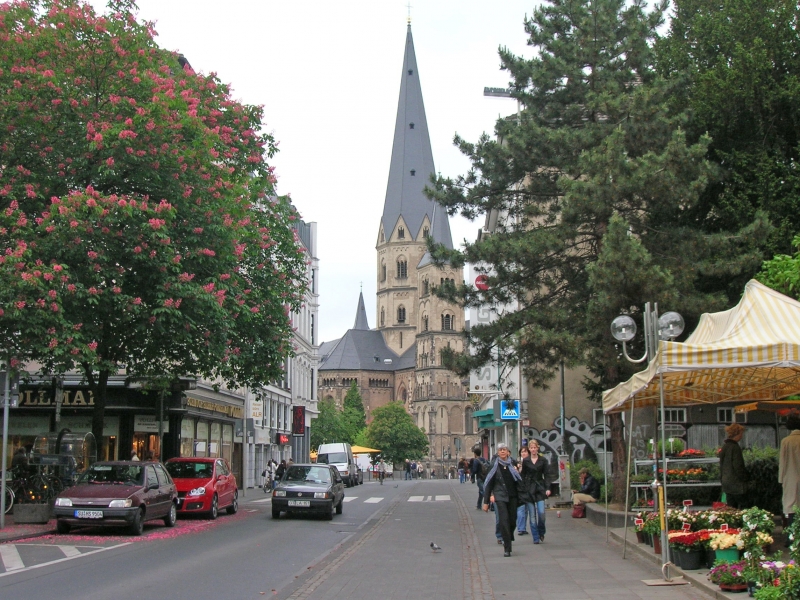
Bonn, officially the Federal City of Bonn, is a city on the banks of the Rhine and northwest of the Siebengebirge (Seven Mountains) in the German state of North Rhine-Westphalia, with a population of 311,287 within its administrative limits. Bonn serves alongside the capital Berlin as the seat of government of Germany. The city is the second official seat and second official residence of the President of Germany, the Chancellor of Germany, the Bundesrat, and the first official seat and first official residence of six German federal ministries. Bonn is located in the southernmost part of the Rhine-Ruhr region, the largest metropolitan area of Germany, with over 11 million inhabitants.
Founded in the first century BC as a Roman settlement, Bonn is one of Germany's oldest cities. From 1597 to 1794, Bonn was the capital of the Electorate of Cologne and residence of the Archbishops and Prince-electors of Cologne. In 1949, the Parliamentary Council drafted and adopted the German constitution, the Basic Law for the Federal Republic of Germany in Bonn. Though Berlin was symbolically named the de jure capital, from 1949 to 1990, Bonn was the seat of government and de facto capital of West Germany. In recognition of its former status it holds the name of Federal City (Bundesstadt).
The two DAX-listed corporations Deutsche Post DHL and Deutsche Telekom have headquarters in Bonn. The city is also the location of 19 United Nations institutions and the University of Bonn. Bonn is the birthplace of Ludwig van Beethoven (born 1770).




